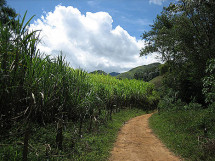Social and environmental impacts of sugarcane production in Brazil
Regiones
In this publication, data and recent analyses will be presented on the expansion of sugar cane monoculture for ethanol production in Brazil, and in particular on the monopolisation in the sector due to mergers and the takeover of production plants by foreign companies

Autores
This study is focused specifically on the merger of the Brazilian company Cosan with the Dutch oil company Shell, which resulted in the formation of Raízen. Some of the central elements in our analysis concern the economical, social and environmental effects caused by the spread of the agricultural model based on monoculture and large land ownership.
In addition to the supposed environmental benefits deriving from the replacement of fossil fuels, the official line about the benefits of this growth includes the prospect of access to the external markets and energy security in times of crisis. With preferential access to loans and several forms of state subsidy, 45% of ethanol worldwide is produced in Brazil. Of all firms running the 435 production plants in Brazil, Raizen, the company formed in the merger between Cosan and Shell, is the largest producer.